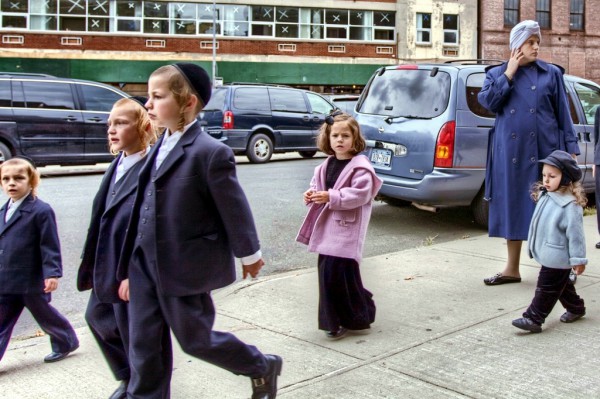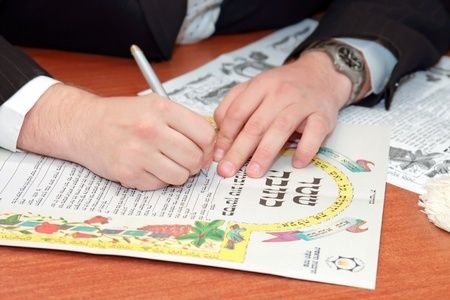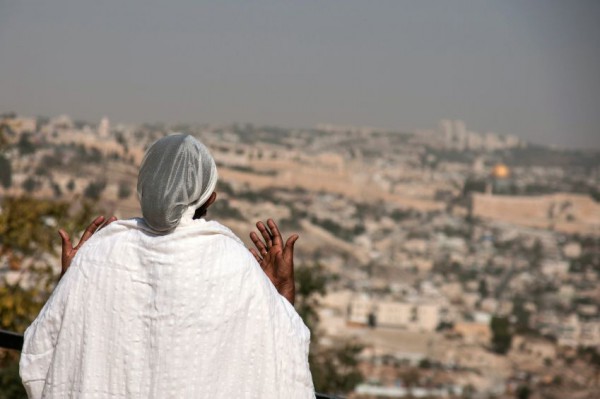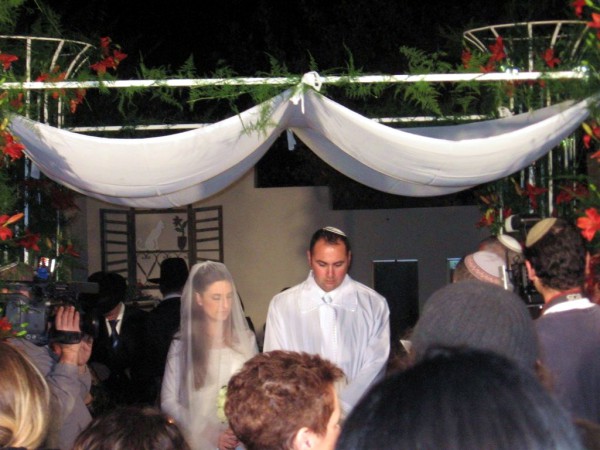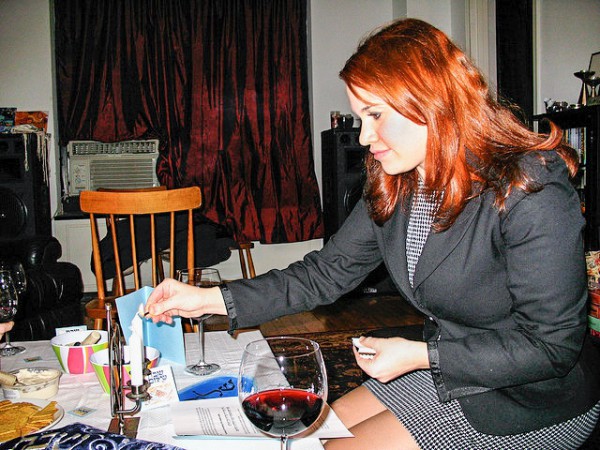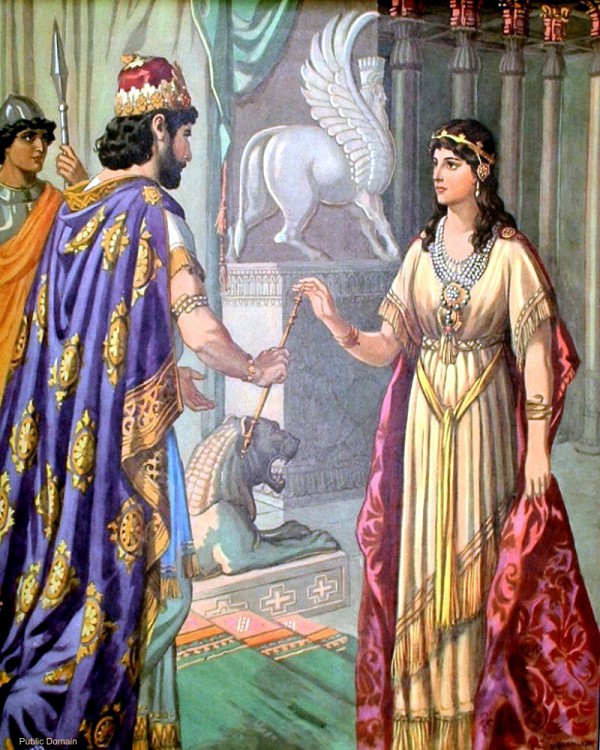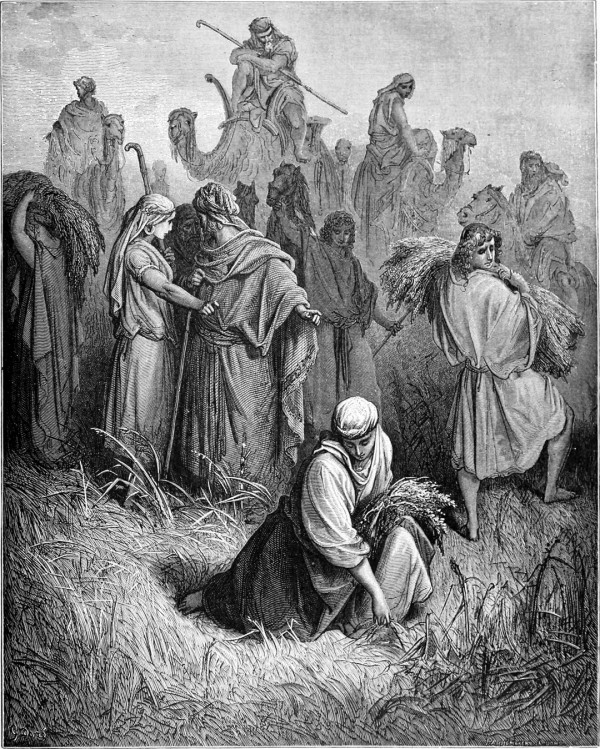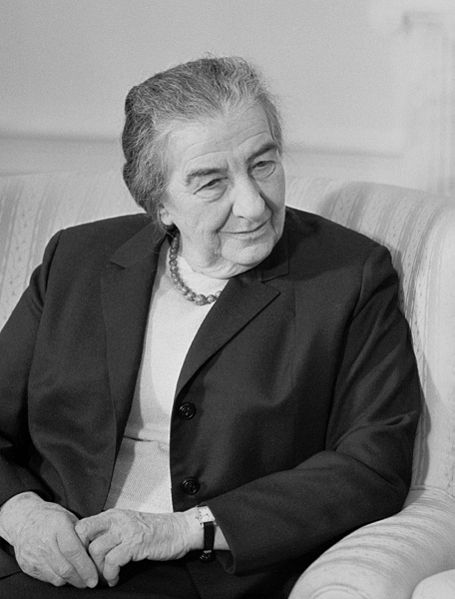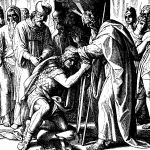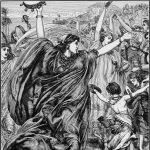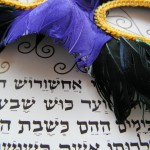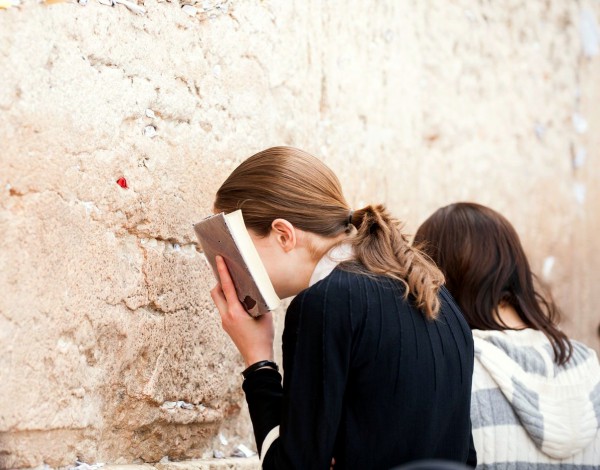
A Jewish young woman buries her face in siddur (Jewish prayer book) as she prays at the Western (Wailing) Wall.
This International Women’s Day (IWD) on March 8, 2016 is a rallying cry for a global “Pledge for Parity” — a call “to help women and girls achieve their ambitions, call for gender-balanced leadership, respect and value difference, develop more inclusive and flexible cultures or root out workplace bias.”
The IWD website declares that equality with men will not be achieved globally until the year 2133. But Judaism can proudly boast that it has already met and surpassed these expectations in several of these areas, esteeming and valuing women in a very deliberate fashion, especially women of valor.
We see the parity and gender-balanced leadership called for on International Women’s Day in the Ten Commandments themselves, the foundation of Jewish life, which confirms equality between fathers and mothers in terms of their status with their children.
The command that children honor their parents lists father before mother in the first occurrence (Exodus 20:12) and mother before father in the second (Leviticus 19:3).
“This reversal is intended to show that both parents are equally entitled to honor and reverence,” according to many traditional sources. (JewFAQ)
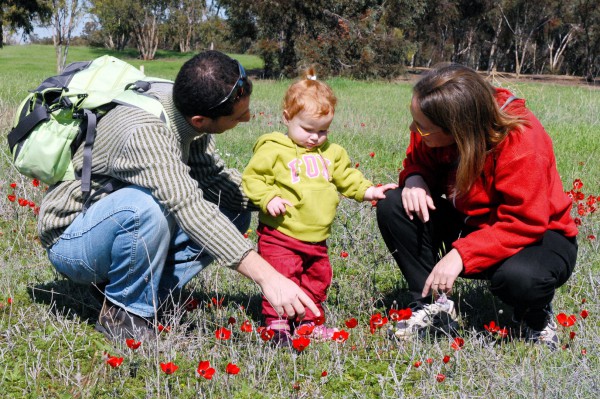
The Torah reveals that both mother and father are equally entitled to respect, honor, and reverence from their children.
Respecting and Valuing Gender Differences
In terms of respecting and valuing differences, many Orthodox Jewish sources hold that women and men were created equal but with different strengths and weaknesses, so as to help each other fulfill one another’s unique destinies as “one flesh” rather than trying to do it alone.
Those sources suggest that woman, as God’s final act of Creation, was ideal in form and function, His jewel achievement.
It is believed that women are more spiritual and generally have greater intuition, making it easier for them to connect with God.
Because of their higher level of spirituality, they are more naturally able to communicate with God privately throughout the day without the need to recite formalized, public prayers at specified time periods, as the men are obligated to do.
This frees up women to spend more time taking care of their responsibilities to nurture their families and manage their home, something they are generally more capable of doing psychologically and socially than men.
In this same vein, women are told that they only need to pray once a day, and they are not required to observe as many mitzvot (commandments) as men.
Orthodoxy obligates Jewish women to observe negative commandments — the “you shall not …” variety and any other mitzvot that help her to lead a well-managed home and nurture a family, such as keeping kosher and Purim laws, lighting Shabbat candles, and following financial and personal integrity laws, such as returning lost items as one example.
However, she is not obligated to study Torah for several hours a day as Orthodox Jewish men do or even come to synagogue if it interferes with family responsibilities.
We see that women are valued and protected even within the Jewish Ketubah (marriage contract), a binding legal document in Israel. It ensures emotional wellbeing and adequate physical provisions for a wife within the marriage — and also beyond the marriage in case of divorce or if the groom were to die.
Jewish marriage contracts also hold marital relations as the right of the woman and not of the man, and something she can request or decline at will.
While women are valued highly in various ways, Jewish tradition seems to practice segregation in certain instances: the pursuit of holiness within Orthodox Judaism requires that women and men do not intermingle during prayer services.
This helps to keep full attention focused on God and not on any physical distractions.
It is thought, however, that the first mechitzah (prayer-room divider) was established to fully disassociate the Temple where the God of Israel was worshiped from the temples of the pagan gods, where prostitution and orgies were practiced as offerings.
Other traditional beliefs hold that women should not lead co-ed prayer services or read from the Torah publicly, not because she is of lesser value but because she performs different roles of equal value based on her inherent qualities as a woman made in God’s Divine image.
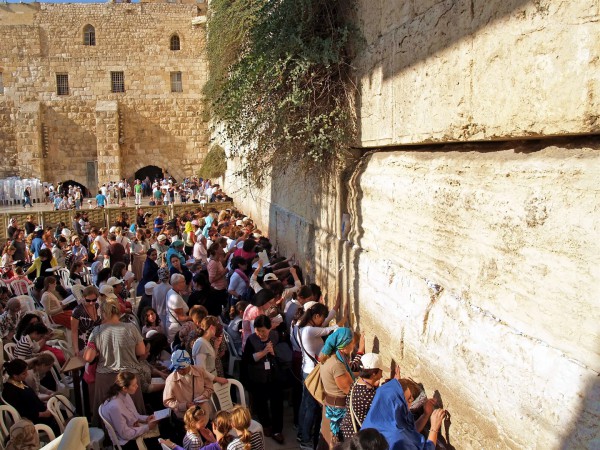
Prayer at the Western (Wailing) Wall in Jerusalem accommodates the traditional divided spaces of worship common in Orthodox Judaism. The women’s section in the above photo is crowded with worshipers. The men’s section past the divide (top) is less crowded.
Honoring Women Through Divine Attributes
We see that the inherent attributes of women are valued within the language of Hebrew itself, where every word follows a male or female pattern. Judaism sees God as neither male nor female but encompassing the best of both.
Throughout the Bible, the God of Abraham, Isaac, and Jacob is referred to in male terminology — Avinu, Malkeinu (our Father, our King):
“They will come with weeping; they will pray as I bring them back. I will lead them beside streams of water on a level path where they will not stumble, because I am Israel’s father, and Ephraim is my firstborn son.” (Jeremiah 31:9)
On the other hand, God’s Shekhinah (Divine Presence) and Ruach haKodesh (Holy Spirit) are feminine expressions in Hebrew: Ruach (spirit, wind or breath), and “Shekhinah” have feminine endings.
God’s Shekhinah literally means the dwelling and is described in the Jewish Encyclopedia as “the majestic presence or manifestation of God which has descended to ‘dwell’ among men” — and, yet, the word form itself is feminine.
To conduct His redemptive mission on earth, however, God chose to send His Messiah as a male through Yeshua (Jesus). Even in that form, He expressed a protective, nurturing, parental longing over His people Israel through feminine imagery:
“Jerusalem, Jerusalem, you who kill the prophets and stone those sent to you, how often I have longed to gather your children together, as a hen gathers her chicks under her wings, and you were not willing.” (Matthew 23:37)
Honoring Women on the Shabbat
In Jewish tradition, feminine attributes are highly exalted in the Shabbat itself, which is referred to as a bride and “Queen Shabbat” in Jewish literature.
When the holy day arrives on Fridays at dusk, Jewish congregants turn to the door of the synagogue to welcome the Sabbath Bride, singing the messianic lyrics of Lecha Dodi (Come My Beloved).
“Shake yourself free, rise from the dust, dress in your garments of splendor, my people, by the hand of Jesse’s son of Bethlehem, redemption draws near to my soul. … Rouse yourselves! Your light is coming, rise up and shine. Awaken! Awaken! Utter a song. The glory of the Lord is revealed upon you. …
“Come in peace, crown of her husband, both in happiness and in jubilation, amidst the faithful of the treasured nation, Come, O Bride! Come, O Bride!”
Women of Wisdom
One of the most prized attributes in Judaism is the acquisition of Godly wisdom. And another way the value of women is esteemed in the Hebrew language and the Torah itself is through the personification of Wisdom as a woman.
“Do not forsake wisdom, and she will protect you; love her, and she will watch over you.” (Proverbs 4:6)
The highly respected Proverbs 31 woman embodies both wisdom and the fear of the Lord, which is often regarded as the theme of the entire book of Proverbs.
“The fear of the LORD is the beginning of wisdom” (Proverbs 9:10), and “a woman who fears the LORD is to be praised. Honor her for all that her hands have done, and let her works bring her praise at the city gate.” (Proverbs 31:30–31)
In Jewish tradition, the Proverbs 31 woman is given a unique honor: she allegorically represents “God’s Spirit, the Sabbath, the Torah, the soul, and wisdom. Choosing the Jewish woman as the image through which to describe such moving spiritual concepts is a profound tribute to her,” writes the website Israel365.
“Just as the capable woman’s value is ‘far greater than pearls,’ the Proverbs also declare that ‘wisdom is better than pearls’ (Proverbs 8:11),” writes The Sabbath Table commentary.
Furthermore, in Proverbs 31, “each depiction of the capable woman represents the Torah in some way,” The Sabbath Table explains. “When the passage says that the woman purchases a field and plants a vineyard (Proverbs 31:16), this refers to the Torah’s promise of the land of Canaan and the establishment of the Jewish people there.”
“The language about her generosity to the poor (Proverbs 31:20) speaks of the commandments to show charity,” the commentary adds, “Her children, the benei Torah, are the Jewish people, and her husband who sits among the elders (Proverbs 31:23) corresponds to the scholars and judges who have mastered the Torah.”
And “a woman who fears the Lord” is actually written as the fear of the LORD (yir’at YHWH, יִרְאַת־ יְהֹוָה) suggesting that the woman is the Torah itself.
This helps us understand why her husband (baal–owner/lord) is described as a common man who can have full confidence and trust (batach) in her (Proverbs 31:11). This is the same kind of trust, hope, confidence that we are so often commanded not to give anyone but God Himself.
Singing the Praises of Women of Valor — Eshet Chayil
“A wife of noble character [eshet chayil] who can find? She is worth far more than rubies.” (Proverbs 31:10)
On Fridays after the Shabbat candles are lit and before the blessing (Kiddush), Jewish husbands sing a recitation of Proverbs 31:10–31 called Eshet Chayil (Woman of Valor), as a blessing over their wives, or — if no women are present — in praise of Jewish women everywhere.
If there are no men to sing the song, women can recite the song “in praise of Jewish womanhood,” writes the Aish website.
Any action that illustrates an act of valor, consistent with the wisdom of Torah, makes a woman “worthy to be praised.”
Thousands of years before the modern-day “call for gender-balanced leadership,” Judaism has been honoring women of valor, who come from all walks of life.
They are equipped with wisdom to start and lead businesses, give to charity, care for and manage their households, and create — both inside and outside the home.
Women of valor in the Bible are revealed across the spectrum of occupations and callings, as well, from working in the fields to reigning in the palace, hosting in the home to trekking in the wilderness:
Ruth was one of many women of valor. This foreigner cleaved herself to Israel and diligently worked in the fields. Boaz’ words in Ruth 3:11 are the only other Biblical reference to the eshet chayil:
“And now, my daughter, don’t be afraid. I will do for you all you ask. All the people of my town know that you are a woman of valor [eshet chayil].”
Esther, like Ruth, is counted among the women of valor. She chose faithfulness despite the threat of death, serving as queen and mediator for her people, leading them out of certain extinction through strategic wisdom and prayer.
Deborah, too, emerged into an unprecedented role of judge over both the men and women of Israel, leading them through victorious battles (Judges 4–5). She is one of the Bible’s women of valor.
Among the more recent women of valor is Golda Meir, the fourth prime minister of modern-Israel. When she was elected prime minister on March 17, 1969, she was the third woman in the world to hold such a position.
In these ways, women and men are equally fulfilling God’s prophetic move to bring back His people and prosper them so they can be a blessing to the world.
The Qualities of Valor
“The Hebrew word ‘chayil’ has many facets, just as the woman it describes in the opening line [of Proverbs 31],” writes Rivka Zakutinsky for Torah website. “According to the way the letters are vocalized, this word can mean ‘valor,’ or it can also denote strength, power, wealth, virtue, honesty, courage, success, or accomplishment.”
Our sages also describe the woman of chayil as a pious woman, who is straightforward and eager.
The Hebrew root chayil, Zakutinsky says, can also be defined as “soldier, military corps and rampart” or “to give birth, to create, to terrify, to perform wonders, to wait, to hope, to succeed and to mature. Who could possibly embody such a kaleidoscopic array of qualities?”
Zakutinsky says the search in Proverbs 31 for a woman of valor is “not merely seeking a person. We are seeking a ‘way’: our own personal method to apply the Torah’s wisdom so that we can be valorous, strong, powerful, wealthy, virtuous, honest, courageous …”
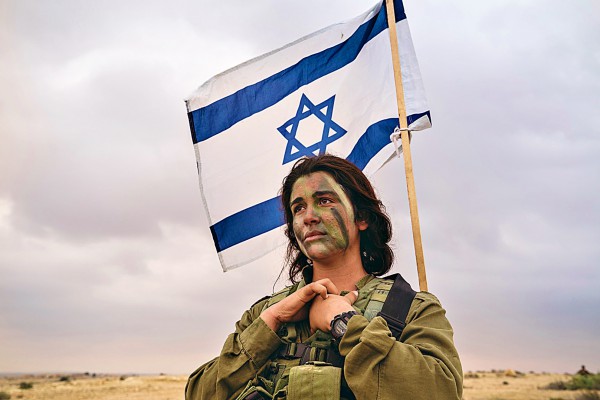
Women in Israel serve in the military, fighting to maintain freedom in a land surrounded by enemies. (IDF photo)
Blogger Elze Erwteman for Woman of Valor adds that the Proverbs 31 woman is “rich in her relationship with God. … A woman of valor is powerful because of her relationship with her Creator. This does not mean that she is powerful in her own strength.”
What does a modern-day woman of valor look like? The characteristics of “chayil” are not locked into an unreachable ideal.
One Israeli woman, Dafna Meir, recently embodied it in her fierce struggle to protect her children and herself when a 15-year-old terrorist invaded the home and stabbed her to death as she bravely struggled against him.
Meir was not blind to the terror that darkened her door, since it has been plaguing Israel since September.
Two months into a wave of stabbings, shootings and car rammings, Meir wrote on an Israeli Web site, “I have been thinking a great deal lately, thinking about why, what should be done or shouldn’t be or can’t be, how to behave, especially on the road, but not only. The fears, for my husband and children, my friends and family. The situation isn’t easy. I sometimes have a feeling of [being in a game of] Russian roulette. And I can’t sleep.”
Meir was a mother of six and a nurse that loved her patients; she studied Arabic to connect better with her Arab patients.
She embodied “chayil” in its definitions of strength, virtue, courage, and success, and as a soldier, fighting for her life, and as a rampart, protecting the lives of her children around her, even as a hen gathers her chicks.
May each of us be people of valor, powerful because of our relationship with Adonai, bravely bringing the Word of Life to those who will listen in these dangerous Last Days.




